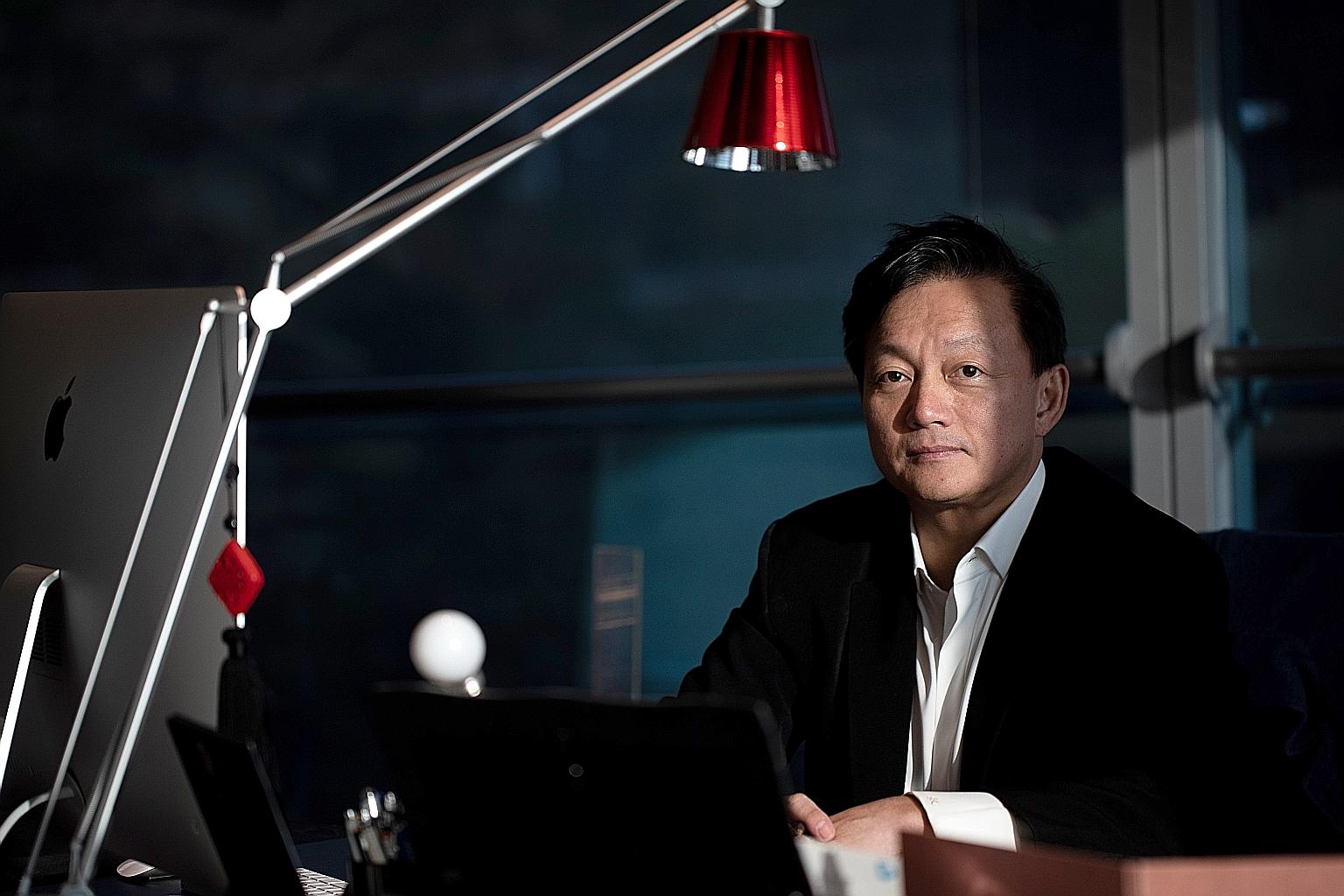New pro-Beijing political party signals China's future plans for HK
Bauhinia Party founded by mainland-born businessmen
Sign up now: Get insights on Asia's fast-moving developments

Bauhinia Party co-founder Charles Wong Chau-chi said the group has consulted with officials in the Hong Kong government, the Liaison Office - Beijing's main body overseeing the city - and relevant offices in China.
PHOTO: BLOOMBERG
HONG KONG • As China moves to neutralise Hong Kong's pro-democracy opposition, it is also giving the green light to a new political party that provides a window into how Beijing may change the territory in the years ahead.
The Bauhinia Party, named after the flower on Hong Kong's flag, was founded last May by Western-educated businessmen who were born in the mainland and have links to the Communist Party.
Although still tiny, the group consulted with officials in the Hong Kong government, the Liaison Office - Beijing's main body overseeing the city - and relevant offices in China, according to Mr Charles Wong Chau-chi, one of the co-founders.
Mr Wong said that while the party never asked formally for the endorsement of those Chinese agencies, "we believe there is no reason they do not want to endorse us".
The party's purpose, he added, was to support people to stand for the position of chief executive, which will be up for grabs next year when Hong Kong leader Carrie Lam's first term expires.
One possibility is the party's chairman Li Shan, who is chief executive of Silk Road Finance, a board member of Credit Suisse AG and a delegate to the National Committee of the Chinese People's Political Consultative Conference, an advisory body to Beijing.
Mr Wong said Mr Li would be interested in becoming Hong Kong's next leader only if he is "required and asked to, not necessarily he wants to".
The Bauhinia Party, Mr Wong said, is not ready to compete in September's Legislative Council (LegCo) elections, delayed for a year due to the pandemic.
The group's formation at a time when China is facing criticism in the West for locking up democracy advocates signals an effort by Beijing to refine a managed version of electoral politics that gives the Communist Party ultimate veto power.
The Chinese authorities last year passed a sweeping national security law that has been used to curtail free speech, while also imposing a patriotism test to disqualify pro-democracy lawmakers - a move that prompted opposition members in the LegCo to resign en masse in November.
The Bauhinia Party's emergence points to a multi-party system that "competes for blessings and a show of loyalty and devotion to whoever is in charge in Beijing", said Hong Kong Baptist University associate professor Kenneth Chan.
Any moves by Beijing to further tighten its hold on Hong Kong would provide an early test for United States President Joe Biden, who has vowed to support democracy proponents in the former British colony.
A former Hong Kong leader still close with Beijing recently suggested the next chief executive should be decided next year by consultation, rather than through a 1,200-person committee.
Beijing, in any case, can veto any winner it does not like.
The Bauhinia Party's platform says it aims to "respect 'one country,' cherish 'two systems,' and safeguard Hong Kong's core values of freedom, democracy and rule of law".
Yet while that sounds in line with Hong Kong's moderate pro-democracy camp, the group's diagnosis of the territory's troubles mirrors that of Beijing.
Mr Wong said the root causes of the 2019 unrest had "nothing to do with China" while pointing to factors such as high-priced housing, poor local governance and an opposition he said was "tearing apart the social fabric and getting everybody angry".
The national security law, he added, was "timely to help stabilise Hong Kong" and had no impact on "one country, two systems" - the framework that guaranteed the territory's autonomy for 50 years after Britain handed over the former colony in 1997.
BLOOMBERG


